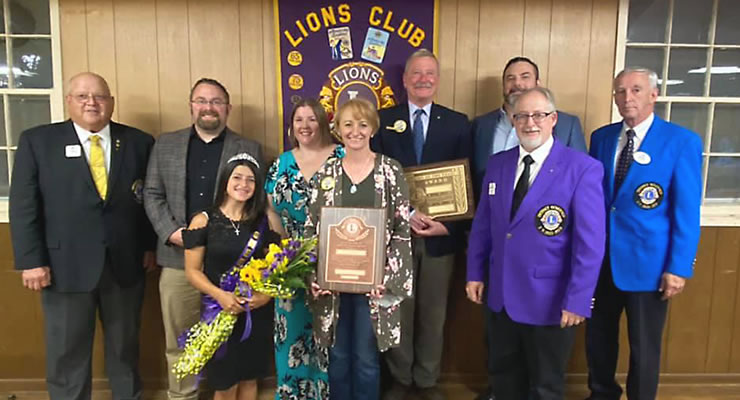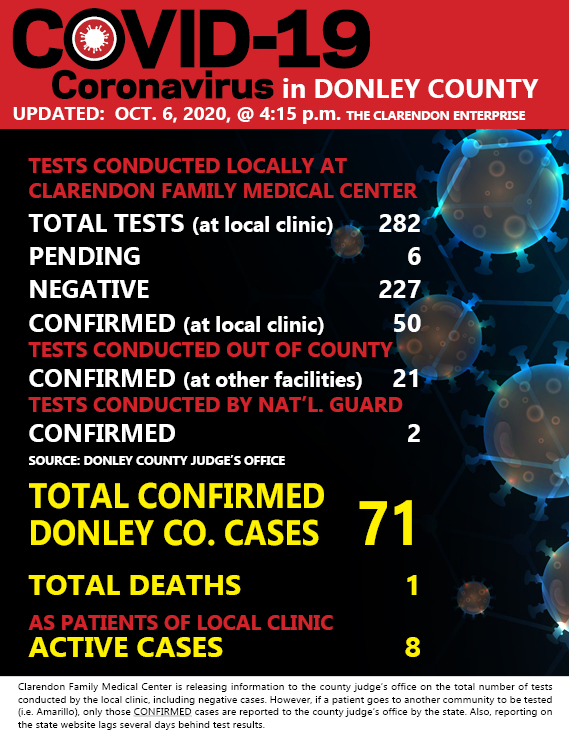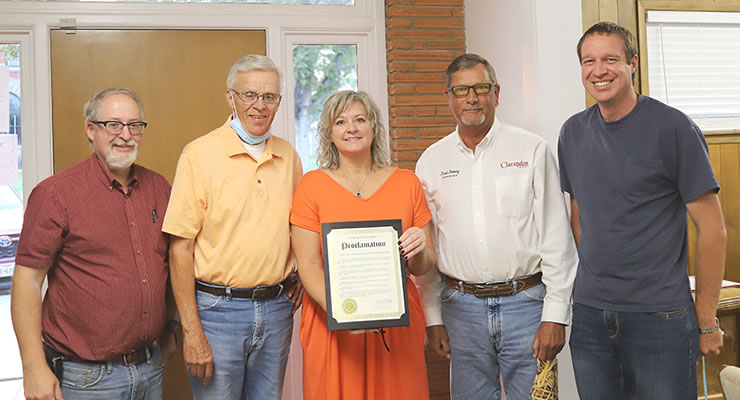“God can handle 2020.”
That’s the message that Zach Williams hopes music lovers will come away with after seeing him and Big Daddy Weave, performs live on stage at Clarendon’s Sandell Drive-In this Friday night, October 9.

The concert will be the latest of the critically acclaimed Drive-In Theater Tour series, produced by Awakening Events. Tickets are available at driveintheatertour.com and are sold by the car load (up to 6 people per car) at $100 per car.
A multiple Grammy Award-winner, Williams told the Enterprise last week that he is excited about Friday’s performance and very happy to be on the drive-in tour with Big Daddy Weave.
“It’s the perfect time of year, and we’re having a great time together with several performances close to capacity,” Williams said, who is the singer/songwriter know for such hits as “Fear is a Liar” and “Chain Breaker.”
The COVID-19 pandemic shut down many performers this year, and Williams was no different. He was five shows into a 40-date concert tour when things came to a sudden halt.
“When it first happened, I felt so worthless,” Williams said, noting that he even talked about possibly finding a new line of work.
He usually performs 100 to 120 shows a year, but had only played six shows from Thanksgiving until the pandemic hit. It was a test of faith, he says.
“The enemy would like to creep in,” he said. “But we know the enemy is defeated. It’s like God saying, ‘Do you really not think I can handle 2020?’ God is in every season and aspect of life.”
Williams said he’s talked to Mike Weaver of Big Daddy Weave about this very thing.
“You’re seeing riots and all this stuff right now, but you’re also seeing people praying together in the streets,” Williams said. “We can be a part of something big in all this.”
Williams and Big Daddy Weave have performed in 14 drive-in theatres this year with another 16 to go. He says it’s been a great experience and a chance to play a lot of towns that ordinarily wouldn’t get to have concerts like this, and for Williams himself it was a first.
“I’m 42 years old, and I had never been to a drive-in theatre before this tour,” he said. “We had the remains of an old drive-in my hometown, but it was closed.”
Williams’ connection to Big Daddy Weave extends beyond this tour and is much more personal.
Williams grew up in Bono, Arkansas, a town of about 1,000 people. He only got into music after a basketball injury sidelined him in college, and he picked up his roommate’s guitar. Soon, he said, he had chord charts up on the wall and was teaching himself how to play. He took a poetry class and fell in love with writing music.
As his rock and roll music career started to take off, his wife surprised him in 2012 as he was leaving home for a tour in Europe. He had gotten into a bad lifestyle like so many musicians do; but if he didn’t change his ways, she didn’t think she could stay when he came home.
While touring in Spain, someone on a bus played “Redeemed” by Big Daddy Weave.
“It blew me away,” Williams said.
When he returned home, he and his wife found a church and started attending. Soon he was working in the church, and playing music, which led to a new music career. And the first band to take him on tour? Big Daddy Weave.
“It’s great playing with those guys,” Williams said. “And we’ll even be doing some songs together on stage Friday.”
Williams hopes everyone gets something out of Friday’s concert.
“If it’s one thing, it’s that everything is going to be alright,” he said. “If you believe, then you already know it’s going to be alright and know what your future is.”
For more information, visit the Sandell’s Facebook page.





 The Clarendon Family Medical Center has had 49 positive cases since the pandemic began with six more tests currently pending. The clinic reports 227 tests have now come back negative for the virus.
The Clarendon Family Medical Center has had 49 positive cases since the pandemic began with six more tests currently pending. The clinic reports 227 tests have now come back negative for the virus.

Reader Comments